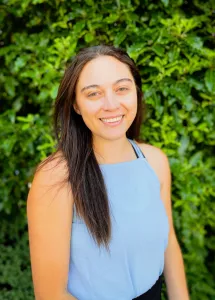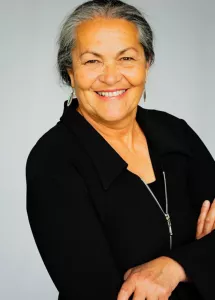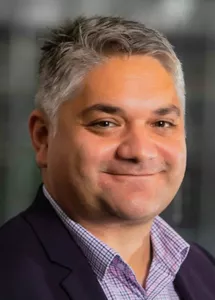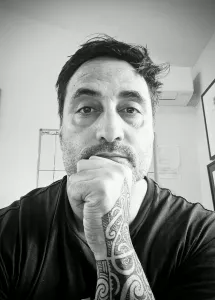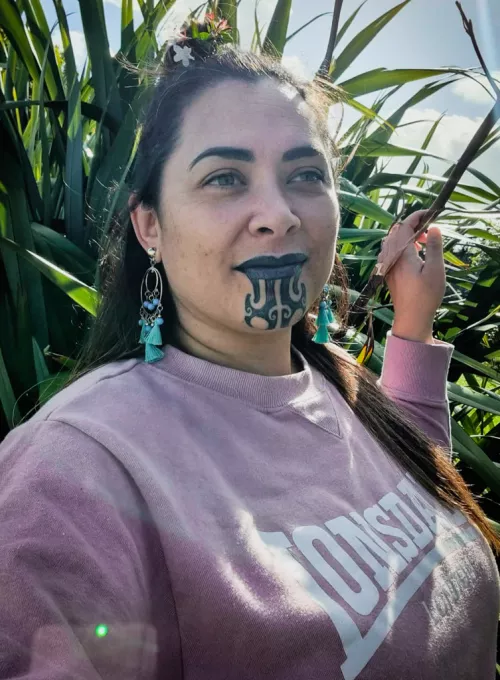
As a midwife, Kaniwa Kupenga-Tamarama is passionate about supporting women in their most vulnerable, intimate, and sacred moments.
After taking an early childhood development class at Mt Roskill High School, she became completely fascinated with embryonic and fetal development. At 16 years old, she knew midwifery would be a major focus for her future career. Shed gained her Bachelor’s degree from Te Wānanga Aronui o Tāmaki Makau Rau | AUT University in direct-entry midwifery while having her first two pēpi.
Whilst working in the heart of Tāmaki Makaurau in Counties Manukau, practising as a community midwife, Kaniwa shares the privilege of caring for thousands of whānau through her clinical practice. Hearing the karanga of ‘home’ call her, she returned to work within her tribal territories and reconnect with ahikaa whānau.
After experiencing postnatal depression with the birth of her fourth pēpi, Kaniwa explored alternative ways of maintaining holistic well-being. She turned to training as a life coach and learned more about the Maramataka. Her kuia, kaumatua and tuakana have been very influential in guiding her through the many different platforms she moves through, alongside the aroha, awhi and patience of her whānau.
Moving into Public Health, Kaniwa focused on strengthening and promoting indigenous well-being practices, i.e., the launch of “Tapu whilst Hapū” as a member of the Tairāwhiti FASD Action Group and collaborating with the Women’s Native Tree Project to koha Native Tree saplings to new pēpi born in Tairāwhiti so they could (if chosen too) practise whenua ki te whenua.
In 2019, she created Kia Kaha Māmā, a well-being coaching platform for wāhine which combines her clinical expertise as a Midwife, personal life experiences as a māmā-of-five and mātauranga Māori (with loads of humour) that reconnects wāhine with themselves, shares how to maintain holistic well-being with positive stress relief strategies, positive protective parenting and addressing the breakdown of unjustified societal expectations and pressures of being a wāhine in the 21st century. The maramataka has guided Kaniwa professionally and personally to navigate daily life challenges, allowing her to stay centred on her spiritual practice.
Currently, Kaniwa is the Midwifery Project Lead of Nāti Pēpi at Ngāti Porou (Hauora) Oranga, a kaupapa Māori Māmā and pēpi service that has moved out of its pilot phase through Kahu Taurima funding. Nāti Pēpi is proof that an integrated approach to maternal and the first 2000 days of child health can be a reality, with the fusion of Clinical, Social and Rongoā Māori delivering a service that is focused on the holistic wellbeing of the māmā, pēpi and whānau.
Kaniwa looks forward to seeing whānau being able to access Nāti Pēpi whilst engaging with Clinicians, Niwareka (well-being coaches), and Rongoā Practitioners within one of the four Nāti Pēpi hubs within Tairāwhiti. It is essential that Nāti Pēpi is built to serve best the needs of Te Whare Tangata, our pēpi, and our whānau, “for what we do now contributes to strengthening our whakapapa for many generations to come, and that is her jam”.
Nāti Pēpi has incorporated the Mauri Ora Goals for Flourishing as the measure of working with whānau and where whānau identify their priorities for their well-being aspirations. With the rising costs and the need for second jobs, Kaniwa recognises the importance of supporting and improving whānau well-being to achieve more equitable living conditions, “Kai sovereignty for whānau is a priority that we support and research ways to reduce the impacts of the high cost of living”.
Kaniwa is a proud member of the Māori Women’s Welfare League (Ngāti Uepohatu Branch), Poutū Tauwhirowhiro of Te Wakahuia o Hine, Te Aukume a Hine te Iwaiwa and He Hono Wahine (Māori Obstetricians and Gynaecologists). Workforce development in health is pivotal for whānau Māori to experience when engaging in services.
When an opportunity arises, Kaniwa shares information with rangatahi and whānau. We are always interchanging between tuakana-teina roles and filling our kete with mātauranga Māori - this is the effect of investing in kaimahi.
When you have inspirational role models to look up to and aspire to, the pathway is clear: personal development is essential, and self-belief in your mahi will ensure you have the space to create and weave new strategies that become bridged pathways to well-being.
“As kaitiaki of te whare tangata, we are the architects of our whakapapa”, which commands a new way of thinking for wahine and for our tane – it drives the message that we are powerful divine beings that build and shape a new era of tangata, that will continue to care for Papatūānuku when it is our time to go back to Ranginui”.
Links:
Whakanoa with Kaniwa Kupenga-Tamarama
High cost of living is squeezing East Coast whānau, local midwife says
